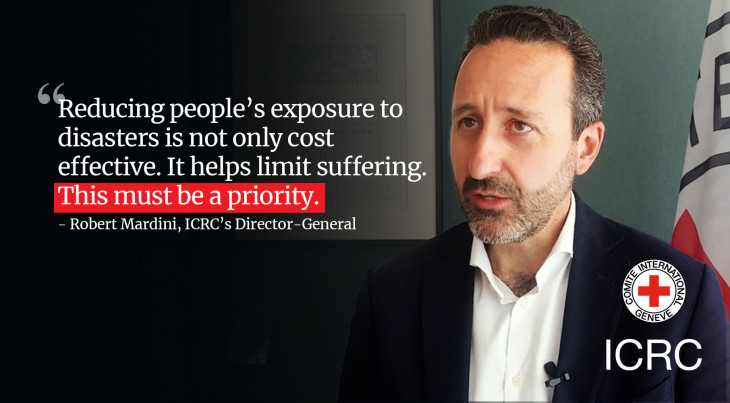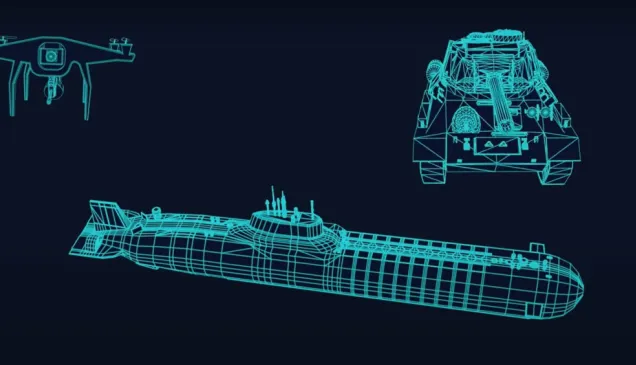People affected by conflict and violence – the people with whom the ICRC works – face major challenges in coping with risks and shocks. Conflict, not surprisingly, radically limits their capacity to adapt. It disrupts the foundations of societies, erodes development and exacerbates vulnerabilities.
Reducing people's exposure to hazards and acting ahead of a shock in these environments is critical. Yet, this is precisely where anticipatory action and finance – and more broadly, preventive action – is weak.

Countries in conflict are on the frontlines of the climate crisis. But in many of the places where we work, basic early warning systems simply do not exist. This may be down to the weakness of systems and institutions. Or to the limited availability of quality forecasts in places without functioning weather stations. Furthermore, funding often remains reactive and unfit for fragile settings.
Longer-term efforts to ensure that people do not settle in risky locations in the first place are also often inadequate. This leads to major losses – of lives and assets, with homes collapsing and harvests destroyed.
There are steps we can take to protect people from the worst consequences of disasters. Some simple programmatic adjustments can make a significant difference.
For instance, the ICRC routinely distributes seeds that are adapted to extreme weather conditions. In several countries of the Sahel, we work closely with National Societies to provide timely and predictable support to people ahead of lean seasons.
But we need to go a step further. While this may not fit a strict definition of anticipatory action, we need to design programmes that make people more resilient to short and longer-term risks. We need to ensure that essential services, shelters, and livelihoods are resilient to hazards. And this requires sustained investment in essential services and social safety nets.
We can all do more. We must urgently rebalance our efforts to focus more on preventive and longer-term resilience strengthening action in conflict settings.
In May, when we adopted the Climate and Environment Charter for Humanitarian organizations, the ICRC committed to factoring climate and environmental risks into all our programmes, with a focus on reducing harm. We are committed to sharing our growing knowledge and to continue working closely with others, from communities themselves, to States, the humanitarian sphere and beyond – and notably the Anticipation Hub.
Reducing people's exposure to disasters is not only cost effective. It helps limit suffering. This must be a priority.
Thank you.



